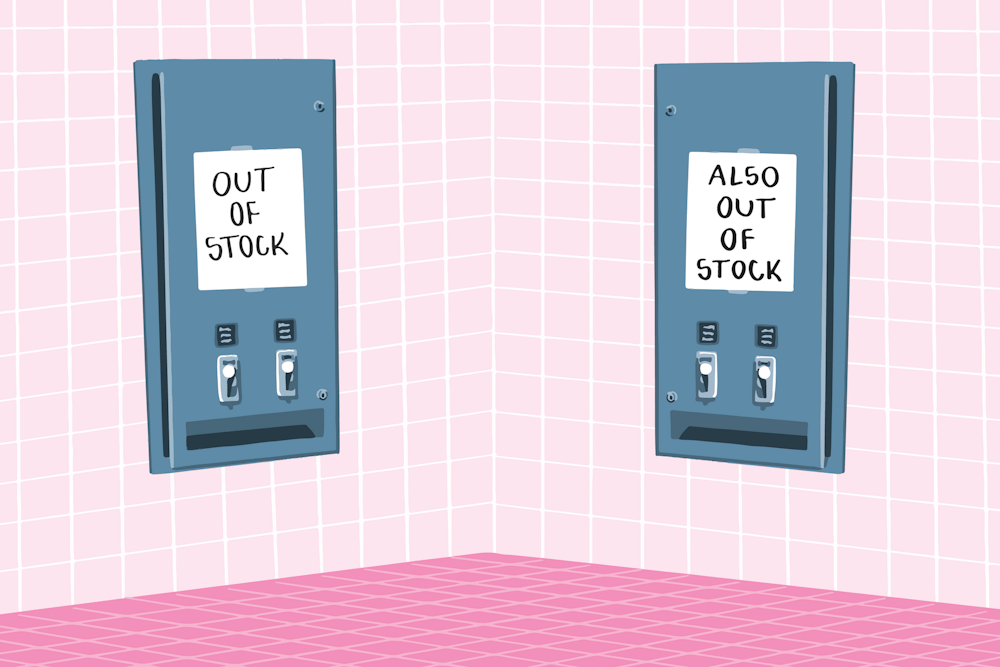Four UNC students – Cynthia Tran, Tammy Yu, Boris Torres and Jennifer Tran – were recipients of the APPLES Bryan Fellowship this semester, a grant given to students to develop a social innovation project while taking a concurrent PLCY 130: Getting It Done: Social Innovation course.
With the fellowship, the group's focus is menstrual equity on campus. The group began stocking menstrual products in baskets prioritizing North Campus starting March 6.
Cynthia Tran, a junior psychology major, said that members of the group noticed that many campus bathrooms either don’t offer menstrual products or have empty dispensers. The group surveyed 21 buildings across campus on Feb. 23 to see how the University systematically stocked menstrual products, Jennifer Tran, a senior majoring in media and journalism, said. Their primary focus was academic buildings, University libraries and Student Stores because students frequent these areas the most.
UNC Media Relations said in an email statement that UNC Finance and Operations does not have access to the data that breaks down the number of menstrual products that are purchased or the amount spent on products because individual units of the University handle product purchase and distribution separately.
Although free menstrual products are available at the Carolina Union, Campus Y, Student Wellness, Student Affairs Services Building and the Dean of Students Office, according to Media Relations, Cynthia Tran said there's no University-wide fund established for menstrual products as there is for toilet paper.
With the fellowship's money, the group aims to create a long-term lasting impact on menstrual equity on campus. Beyond simply providing products, the group also wants to promote sustainable period products made of 100% cotton and cardboard packaging. However, this is far more expensive than the typical pad or tampon provided by current University dispensers, Yu, a junior biology major, said.
The cost barrier, Jennifer Tran said, is a main concern to the movement’s longevity. After the fellowship money runs out, there’s not a designated University group to fund the program.
"It really sometimes is like a logistical issue that not everyone wants to put time and dedication to resolve,” she said.




